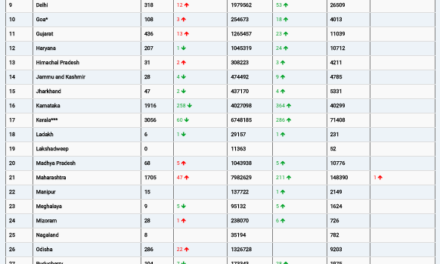Cutting-edge research led by scientists at the University of Chicago has unveiled a groundbreaking artificial intelligence (AI) tool capable of modeling the infant gut microbiome, offering unprecedented insights into early development and health outcomes. The innovative “digital twin” of the infant microbiome, known as Q-net, harnesses AI algorithms to predict microbial dynamics and their impact on neurodevelopmental deficits, potentially revolutionizing our understanding and management of infant health.
Published in Science Advances, the study sheds light on the profound influence of the gut microbiome on the health and development of infants. Dysbiosis, or imbalances in the microbial community, has been linked to gastrointestinal diseases and neurodevelopmental deficits. However, understanding the complex interactions within the microbiome has remained a formidable challenge for traditional laboratory experiments.
Lead author Dr. Ishanu Chattopadhyay, Assistant Professor of Medicine, and his team devised Q-net to address this challenge. By leveraging generative AI, Q-net constructs a virtual model of the infant microbiome, simulating microbial species’ dynamics and developmental changes. Utilizing fecal sample data from preterm infants in neonatal intensive care units (NICUs), the researchers demonstrated Q-net’s predictive power, accurately identifying infants at risk for cognitive deficits with 76% accuracy.
Dr. Chattopadhyay emphasized the limitations of conventional laboratory experiments in capturing the dynamic nature of the infant microbiome, which undergoes constant changes and maturation. Q-net’s innovative approach overcomes these limitations, offering a comprehensive understanding of microbial interactions and their implications for infant health.
The digital twin concept, akin to other forms of AI, represents a transformative technology at the intersection of computer science, engineering, and life sciences. By rapidly analyzing complex microbiome dynamics, Q-net expedites research processes that would otherwise take centuries to complete, providing invaluable insights into potential treatment targets.
Crucially, Q-net’s predictive capabilities extend beyond identifying at-risk infants. The model also suggests potential interventions to mitigate developmental risks, highlighting the importance of precision and timing in therapeutic strategies. While probiotics may offer benefits for some infants, incorrect interventions could exacerbate developmental risks—a cautionary finding underscored by the study.
Looking ahead, Dr. Chattopadhyay envisions Q-net’s applicability beyond the microbiome, foreseeing its potential in modeling diverse biological and social phenomena. By analyzing large datasets and identifying intricate connections, Q-net holds promise for addressing pressing challenges across various domains, from viral evolution to public opinions.
With its remarkable predictive power and broad applications, Q-net represents a paradigm shift in our approach to understanding and managing infant health. As researchers continue to unlock the mysteries of the microbiome, Q-net stands as a powerful tool poised to drive transformative advancements in pediatric medicine and beyond.
For more information on the study and its findings, refer to the publication in Science Advances (2024).











